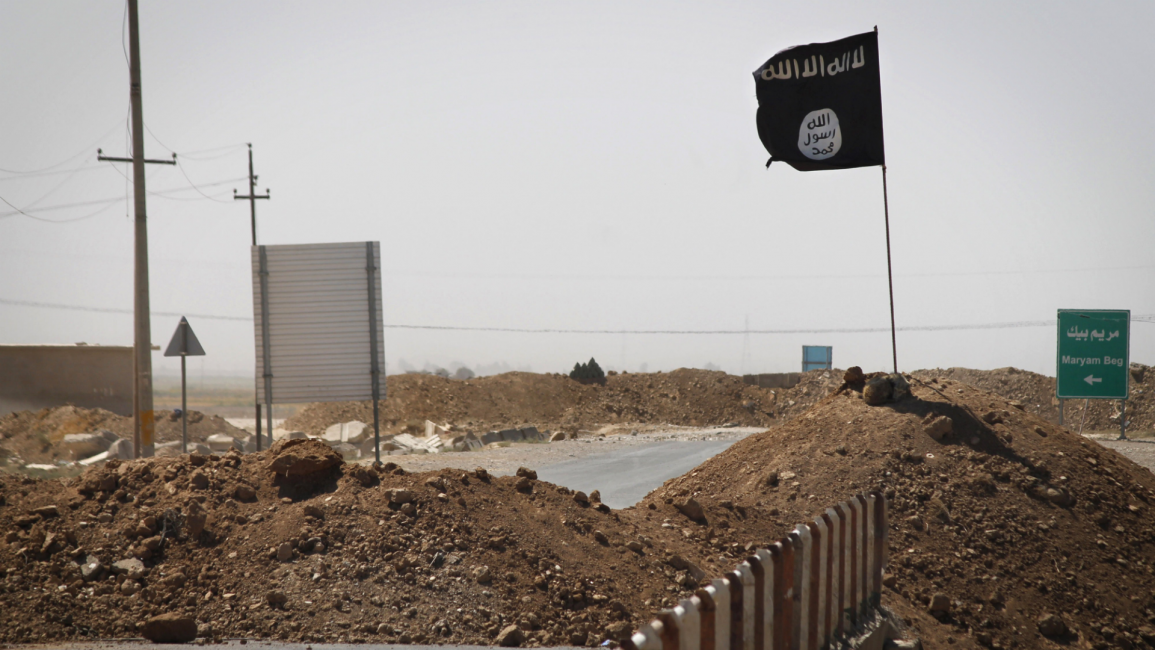Coalition plans to target the IS group's leadership
The US-led coalition against the Islamic State group (IS) is hoping that by targeting the group's leaders, it can undermine its popular support and ultimately its capabilities, a high-level source at Iraq's ministry of defence has told al-Araby al-Jadeed.
The plan has been dubbed "hyena hunting" and aims to eradicate 32 of the group's senior leaders. Al-Araby al-Jadeed has obtained most of the names on the list. IS leaders are also being targeted by Iraqi intelligence services, and the so-called 'Falcons cell', a group linked to the Iraqi cabinet and in charge of counter-terrorism activity.
Earlier this month, an air strike near Mosul was reported to have targetted Abu Bakr al-Baghdadi, the IS chief. A subsequent audio recording put paid to those reports, but the srike fits with the strategy outlined to al-Araby al-Jadeed by the senior Iraqi officer.
"Iraq is only participating in the coalition plan in an intelligence capacity," the source, a senior officer in the Iraqi army told al-Araby al-Jadeed. The officer, who did not want his name published, also listed
| The plan has been dubbed "hyena hunting" and aims to eradicate 32 of IS's senior leaders. |
some of the names on the list:
-
Ibrahim Awwad Ibrahim al-Badri al-Samarrai aka Abu-Bakr al-Baghdadi, self-proclaimed Caliph ["successor to Prophet Muhammad"] of IS;
-
Fadel al-Hayali aka Abu Muslim al-Turkmani the "Caliph's" deputy, an Iraqi national from Tal Afar in Nineveh province;
-
Abu Mohamed al-Jazraoui, IS's financial and administrative chief, a Saudi national;
-
Adnan Latif Hamid al-Suwaidi aka Abu Abdullah al-Salam the Waly ["governor"], an Iraqi national;
-
Ahmad al-Jahishi aka Abu-Fatma al-Ansari, an Iraqi national;
-
Aoun Abdul Rahman al-Afri, in charge of the communications department;
-
Shawkat Hazem al-Farhat, aka Abu-Ghada al-Urdunee (abu-Ghada the Jordanian), a Jordanian national who was formerly Abu Musab al-Zarqawi's assistant;
-
Hatem Nayeb al-Akidi, a Syrian national, head of the Sharia (Islamic law) courts in Iraq and Syria;
-
Taha Subhi Flaha, aka Abu Mohamed al-Adnani, IS spokesperson;
-
Abdullah al-Mashhadani, aka Bassem abu-Alabed, managed the organisation's headquarters and training camps;
-
Bashar al-Hamdani, in charge of IS prisons in Iraq;
-
Ahmed al-Duraidi, in charge of the organisation in Syria;
-
Abdul-Wahed Ahmed a Sudanese national;
-
Abu Omar al-Shishani, al-Baghdadi's advisor over fatwas ["Islamic religious ruling"];
-
Hamid Ghanem, a Kuwaiti national, in charge of the suicide division named after Abu-Dujanah al-Ansari (an al-Qaeda affiliate);
-
Abu-Ali al-Almani (Abu-Ali the German of Moroccan roots), in charge of training new fighters;
-
Farid Ismail aka Abu-Sumaya al-Tunisi (Abu-Sumaya the Tunisian) a French citizen;
-
Ahmed Abdulkader, an Iraqi national, the Wali of Baghdad.
The officer said the strategy rests on the assumption that killing IS leaders will shorten the war on IS by eroding the confidence of IS's fighters and supporters.
He said that Arab, Muslim and Western countries have given the coalition the names of any of their citizens they know are leaders within the IS. They are also monitoring the phones of any close associates and family members, hoping to determine locations. Locals in Iraq and Syria are also providing information, including fighters who recently joined the organisation, and others who have been forced to join.
"The team that was previously in charge of pursuing former al-Qaeda leader, Osama Bin Laden, is now working on the plan in Baghdad," the officer added.
The US Intelligence Agency is also training 200 Iraqi intelligence officers in Baghdad's green zone in intelligence gathering, analysis, recruiting local sources, and in the use of surveillance and monitoring equipment.
This article is an edited translation from our Arabic edition.



